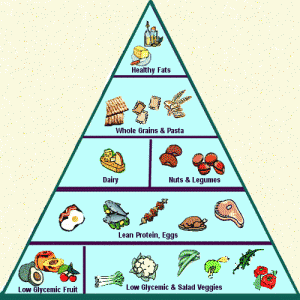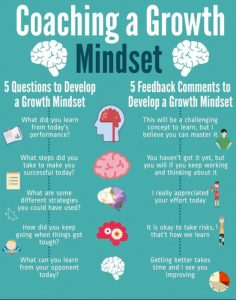Written by Renae Livermore (Year 5 Teacher)
With the whole family on busy schedules it can be very difficult to maintain those small routines which are fundamental to our children’s overall wellness. The following are our top 3 tips for ensuring the health and vitality of your child, each and every day.
- Enforce a regular bedtime

 Ensuring that your child gets enough sleep should be the highest priority in supporting their overall health and vitality. The amount and quality of sleep children get has a direct impact on their mental and physical development. The National Sleep Foundation recommends school aged children between the ages of 6-13 years get 9-11 hours of sleep per night. Studies indicate that academic, extra-curricular and social demands increase for children at this stage and this can result in children beginning to develop bedtime resistance, anxiety around bed time and difficulty falling asleep. The following are some practical tips for helping your child get to sleep and stay asleep:
Ensuring that your child gets enough sleep should be the highest priority in supporting their overall health and vitality. The amount and quality of sleep children get has a direct impact on their mental and physical development. The National Sleep Foundation recommends school aged children between the ages of 6-13 years get 9-11 hours of sleep per night. Studies indicate that academic, extra-curricular and social demands increase for children at this stage and this can result in children beginning to develop bedtime resistance, anxiety around bed time and difficulty falling asleep. The following are some practical tips for helping your child get to sleep and stay asleep:
- Minimize screen time by having children put their devices away at least 30 minutes before bed time and keep TV’s and other screened devices out of the bedroom.
- Teach children about the effects of sugar and caffeine and ensure that foods and drinks high in these elements are avoided in the afternoons and evenings.
- Enforce a bedtime and maintain a routine even during school vacation when possible.
- Create a bedroom for your child that is conducive to sleep.Climate controlled, appropriate lighting and quiet.
For more information about the importance of sleep visit:
National Sleep Foundation: Children and Sleep
Kids Health: All About Sleep
- Eat Clean
We are acutely aware of the importance of a healthy balanced diet for our children. When it comes to diet and eating, parents can be faced with a complex challenge juggling what is optimum to health and development along with factors such as: allergies and intolerances; fussy eaters; and mixed information. Sometimes, the more research we do the more confused we become. So, while it is true that there are no perfect answers for our children in terms of diet, there are some fundamental guiding principles that we can follow in order to ensure our children are eating a clean, balanced diet which supports a consistent level of focus and energy throughout the day.
- Plan for a diet high in vegetables and fruits, particularly dark leafy greens such as kale, broccoli and spinach. When buying fruits and vegetables do your best to stick to certified organic products in order to avoid harmful pesticides and chemicals.
- Incorporate Omega 3 & 6 along with healthy fats to support brain development. Wild salmon, avocado, coconut, flaxseed and almonds (if not allergic).

- Stick to complex carbohydrates and avoid hidden sugars. Essentially carbohydrates are just sugars in disguise. Of the carbohydrate that we consume what is not burned off in energy is simply stored as fat and this fat is a byproduct of sugar. In order to avoid those dizzying sugar spikes and harrowing lows throughout the day it is important to consume foods with a low glycemic index (Low GI). Some great options include; quinoa, brown rice, sweet potato, oatmeal, beans and lentils.
- Discuss food with your children and involve them in healthy meal planning and preparation. Children are motivated by things that they feel a part of. When your child feels a sense of ownership over what they are eating and the benefit to them, it will be a lot easier to get them on board, making some small dietary adjustments a little more digestible for the whole family.

For more information about clean eating visit:
Food for the Brain
Kids Health: Healthy Eating
BBC Good Food, Heathy Eating: What young children need
- Make time for conversation
 A large part of our physical wellbeing is influenced by our emotional state. Children need to feel that they are supported and valued in order to become healthy risk takers. YCIS has been focusing on mindfulness and in particular the importance of having a Growth Mindset. Carol Dweck, Professor of Psychology at Stanford University and the author of Mindset: The New Psychology of Success, asserts that, how children perceive their abilities plays a key role in motivation and achievement. Children need to be resilient, academically and socially in order to cope with their busy academic and extra-curricular schedules and thrive in such an environment. Simply making time each day to converse with your child about the things that are on their mind, learning about both their victories and set-backs can help foster a growth mindset. Try some of these strategies for opening a routine of dialogue with your children:
A large part of our physical wellbeing is influenced by our emotional state. Children need to feel that they are supported and valued in order to become healthy risk takers. YCIS has been focusing on mindfulness and in particular the importance of having a Growth Mindset. Carol Dweck, Professor of Psychology at Stanford University and the author of Mindset: The New Psychology of Success, asserts that, how children perceive their abilities plays a key role in motivation and achievement. Children need to be resilient, academically and socially in order to cope with their busy academic and extra-curricular schedules and thrive in such an environment. Simply making time each day to converse with your child about the things that are on their mind, learning about both their victories and set-backs can help foster a growth mindset. Try some of these strategies for opening a routine of dialogue with your children:
- Take time at the dinner table to talk about a good and/or bad thing that happened that day.
- Model sharing about your own day at work.
- Take a cue from a school project, new topic or homework as a conversation starter.
- Try to ask open ended questions.
For more on making time for conversation and growth mindsets visit:
Tips to get your child to talk about their school day
The Power of Believing that you can Improve (Carol Dweck on TED.com)
Class Dojo: The big ideas





